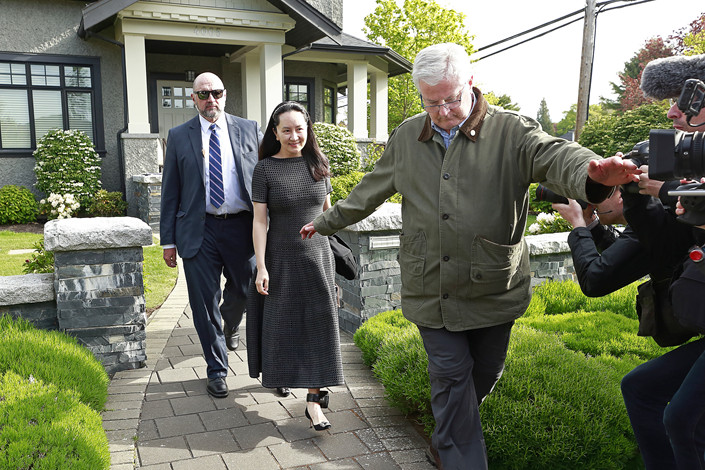Meng Wanzhou’s Lawyers Ask Canada to Terminate Her Extradition Case

Lawyers for Meng Wanzhou, the chief financial officer of China’s top telecom equipment producer Huawei, have petitioned Canada’s justice minister to end the ongoing proceedings to extradite her to the U.S.
Meng, a daughter of Huawei Technologies Co. Ltd.’s founder Ren Zhengfei, was arrested in December in Vancouver at the request of the U.S. Justice Department over alleged fraud in connection with U.S. sanctions over Iran. She is out on $7.46 million bail in Vancouver, facing an extradition hearing in the Supreme Court of British Columbia scheduled to begin in January.
The minister has the power to end the proceedings under the Extradition Act as his power is “distinct” from the court, according to a three-page statement that the lawyers issued on Monday.
Meng’s legal team also argued that the extradition proceedings are “unprecedented” in Canada, according to the statement signed by the lawyers, including Richard Peck and David Martin.
“No similar extradition request has ever been entertained by Canada. Palpably, it is brought for political purposes as opposed to legitimate criminal law enforcement reasons,” the statement said.
U.S. President Donald Trump said in December that he would intervene in Meng’s case if it would serve national security interests or help reach a trade deal with China.
Read More
In Depth: How Huawei Prepared for American Sanctions
These arguments basically reiterate what Meng’s lawyers have already said in court, but the statement came a week after former Prime Minister Jean Chretien urged Ottawa to terminate the high-profile extradition case to thaw frigid relations with China. Foreign Minister Chrystia Freeland rejected the idea.
The case has dragged Chinese-Canadian relations into a mire. China has arrested and accused two Canadians of espionage, and has suspended canola imports from the North American country.
“Canada is at a crossroads respecting the United States’ request that Canada extradite Ms. Meng, for conduct that could not be an offence in Canada and which is at odds with Canadian values and established foreign policy regarding Iran,” Meng’s lawyers said in their statement.
To drop the proceedings would be in Canada’s best national interests, they said.
They argued that Canada has no jurisdiction to prosecute Meng given that the alleged fraud in relation to the U.S.’ extradition request took place on foreign soil — Hong Kong, involving a foreign national — Meng — and a foreign bank, according to the statement.
They also pointed out the nonexistence of “double criminality,” the fundamental principle that governs extradition from Canada to the United States, given that Canada did not join the U.S.’ heightened sanctions over Iran.
Meng would never be liable in Canada because “only the U.S. has sanctions laws prohibiting foreign banks entering into U.S. dollar transactions for doing business with foreign companies that sell commercial goods into Iran,” the statement said.
The lawyers went on to argue for ending Meng’s case from the perspective of Canada’s independent foreign policy, which has departed from U.S. policy at times in the past. “Recently, this has been reflected in the government’s resistance to joining the war against Iraq and, ironically, its resistance to the re-imposition of sanctions against Iran,” the statement said.








